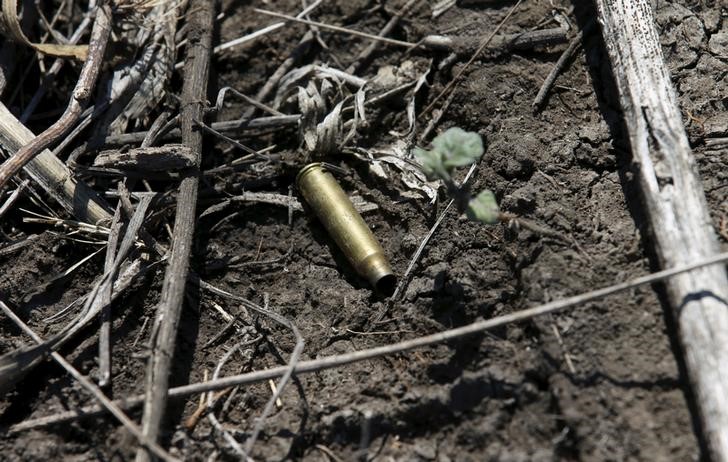MEXICO CITY (Reuters) - An international human rights body on Friday called for Mexico to investigate a clash between security forces and alleged gang members that killed 43 people, citing testimony suggesting it had included extrajudicial killings by the state.
In May, authorities said 42 suspected members of the Jalisco New Generation Cartel had been killed in a three-hour gunfight near the small town of Tanhuato, Michoacan, with one federal police offer also killed.
Reports later said some of the dead had been shot in the back, while families said some victims showed signs of torture.
"The testimonies...at least suggest that there were extrajudicial executions, and there should be an investigation," said James Cavallaro, vice president of the Inter-American Commission on Human Rights (IACHR).
Mexico is living through a human rights crisis characterized by forced disappearances, executions, torture and impunity, the IACHR said, after a five-day visit to the country.
In response to the IACHR findings, Roberto Campa, the deputy interior minister responsible for human rights, said a report based on a short trip looking into particular cases could not reflect the general situation in the country.
A spokesman for the federal police declined to answer questions about the case, which Mexico's National Human Rights Commission said in May it would look at.
Tanhuato was a two-way fight, the government has previously said.
Another incident this year should also be probed for possible extrajudicial executions, Cavallaro said.
In January, the government said 16 people, mostly members of armed vigilante groups battling drug cartels, were killed in crossfire in the western city of Apatzingan.
But media investigations later suggested federal police had shot dead unarmed people.
"There's evidence and indications and other information that call the official version into question," Cavallaro said.

Last year, prosecutors ended up charging a group of soldiers with murder, over a clash with alleged gang members that killed 22, after having initially rejected the suggestion of foul play.